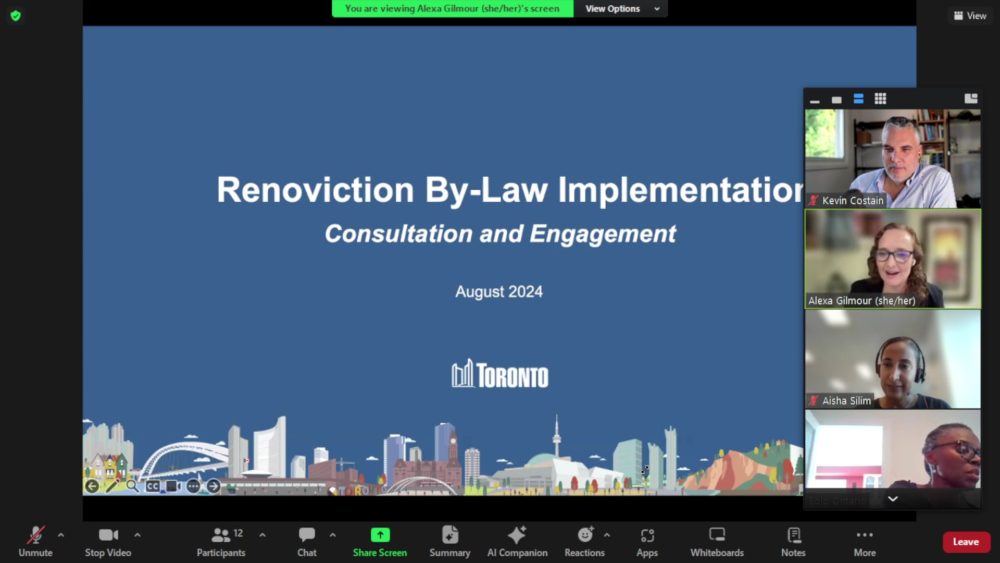Following the footsteps of the city of Hamilton, Toronto city council passed on June 27th a by-law mandating landlords to follow a new procedure regarding the issuance of an N13: also known as “Notice to End your Tenancy Because the Landlord Wants to Demolish the Rental Unit, Repair it or Convert it to Another Use”.
SOLO was approached by a city hired consultant to get “input from small landlords” on how to implement this “renoviction by-law“. The topic was as follow:
- Context and Objectives
- Proposed Renoviction By-Law design
- Questions and Answers
The primary stated objective was to “toughen” the N13 requirement to evict a tenant for renovation. The city of Toronto will demand any landlords willing to make any renovation to first file an application with the city, then compensate tenants during the renovation including “cash for application” making the landlords vulnerable to the tenants’ cooperation. The main requirements to landlords to evict under the by-law are:
- Requiring landlords to apply for a renovation licence within seven days of issuing an N13 notice to a tenant.
- Submission of documents such as approved building permits, a copy of the N13 notice, a Tenant Information Notice, a report confirming the need for vacant possession and a tenant accommodation or compensation plan.
- Prohibiting landlords from beginning renovations until the renovation licence is obtained
SOLO was represented by Board members and volunteers: Boubah Bah, Kevin Costain
Rose Marie, Woj Treszczynski, Stephen Burman, Hart Togman, Bita Dilisi
After listening to the city presentation, SOLO representatives asked the tough questions:
- Why is the city government, involving itself in a clearly provincial jurisdiction as the Landlords and Tenant Board is the only body allowed to adjudicate disputes between landlords and tenants in Ontario?
- Why consult landlords now only after the city has already passed the resolution months ago?
- How solid are the statistics provided by tenants group with biases’ to support that there is a “renoviction” crisis in Ontario?
- Why are they rushing an untested program that may fail elsewhere and in Hamilton (which is not even implemented yet)?
- Does the city realize the most likely outcome to this projected by-law will be to discourage small landlords from entering or remaining in the Toronto rental market due to the burden placed on them?
SOLO could not get acceptable answers to these questions. But the conversation was frank and both sides welcomed the opportunity to initiate a dialogue with city officials who seemed to be taken by surprise about the unintended consequence of the current by law which may have the opposite effect as many SOLO landlords will continue exiting the rental business in Ontario.
Boubah on behalf of the SOLO members demanded that the city exempt small “mom and pop” landlords from this requirement as they are not only vulnerable financially and emotionally but unable to comply and may rather leave their properties empty or exit the market all together as it is happening now.
The city’s bureaucrats and the consultant promised “to report to council” and have a further communication session with SOLO.
